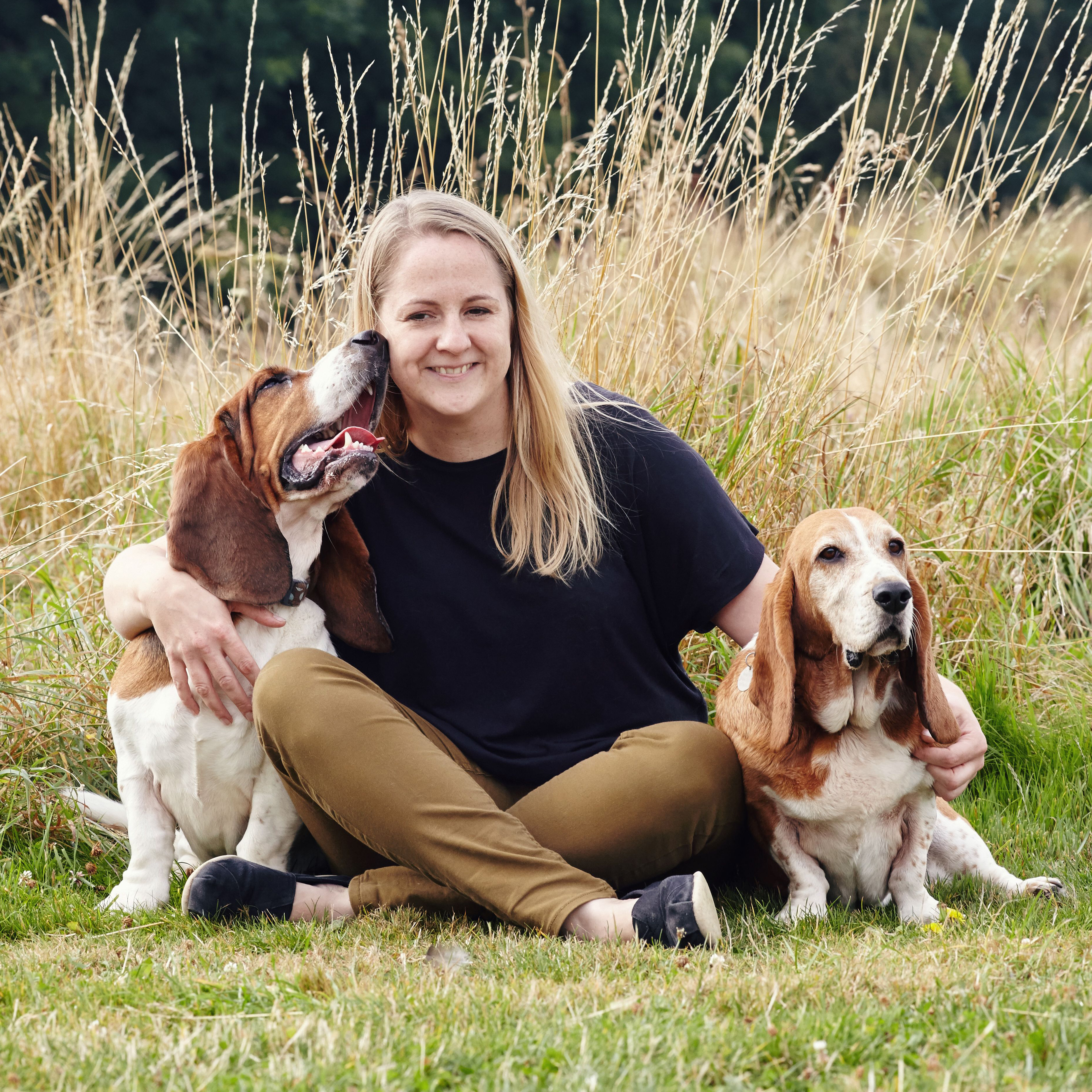Is your dog’s stomach gurgling? Our vet explains when to seek help
Here are some of the reasons why your dog’s stomach is gurgling and what you should do

If you’ve been hearing your dog’s stomach gurgling more than usual, you might be concerned. Any changes in your dog’s wellbeing can be a worry, especially if these stomach rumbles have coincided with loose stool, vomiting, or a lack of appetite.
There’s a fun scientific word for noises coming from any animals’ stomach - borborygmi! While it might be hard to say, it simply means the noises made by moving liquid and gas in the gut. Some stomach noises are a normal part of digestion or your dog may even just be experiencing an increase in appetite - but to be sure on this read a vet's answer to 'why is my dog always hungry?'. However, excessive rumbling is definitely something to look into.
It could be that your dog has got a simple case of gastroenteritis, caused by bacteria, a virus, the presence of parasites, or even new food. Many pet parents spend quite a bit of time trying different foods for their dogs, especially if they have allergies - but while trying to find the best dog food for allergies, all the swapping around puts a lot of stress on the gut.
Keeping track of when your dog’s stomach is making these noises can help a vet to understand what’s going on – especially if you’ve been giving your dog more treats recently or they’ve visited some new locations.
But just when should we be concerned about a dog’s stomach gurgling? Small animal vet Dr. Hannah Godfrey shares her thoughts on grumbling stomachs and why your dog’s tummy might be making a lot of noise.
Why is my dog’s stomach gurgling?
Getting to the bottom of your dog’s stomach gurgling can mean looking closer for other signs. Take care to notice if your dog’s tummy is making noises...
At night
Night-time is usually the longest stretch that your dog goes without food, leading to a build-up of stomach acid and, sometimes, nausea. If you notice your dog’s stomach gurgling at night, it might mean that the acid is building up in their stomach.
Get the best advice, tips and top tech for your beloved Pets
You might notice that your dog often vomits early in the morning, before their breakfast. Consider your dog’s feeding schedule. Sometimes, you can combat this by splitting your dog’s meals throughout the day and feeding them a small amount just before bed, so their stomach isn’t completely empty for so long.
It’s also worth considering whether your dog has just had a big meal or something out of the ordinary to eat. If their routine has changed, then you might expect to hear gut sounds at a time when you wouldn’t usually. However, noisy digestion and gas can also signify other health issues.

After eating grass
It’s not totally understood why dogs eat grass. However, it’s thought that they sometimes take a liking to the lawn if they have an upset stomach. Feelings of nausea or indigestion might be calmed by eating grass or, failing that, it might help them vomit, after which they may feel better. Not all grass eating is a sign of a gut upset, though; it can just be a habit, and it’s often harmless.
Grass is challenging for your dog to digest, so large amounts can occasionally cause irritation or a blockage in their stomach or intestine.
Accompanied by vomiting
If you can hear lots of gurgling from your poorly pooch’s stomach and they’re also vomiting, it could be a sign that their stomach or intestines are inflamed or that they have an infection (check out more information about vomiting in dogs if you have concerns). It could also be due to a gastric infection, a change in diet, or because they’ve scavenged something that they shouldn’t have!

Accompanied by diarrhea
If your dog has an upset tummy, they might have diarrhea too. This might be alongside vomiting or on its own. Your dog’s stomach gurgling noises are gas and fluid moving around within the intestines, and your dog might seem uncomfortable if they’re experiencing cramping or gut spasms.
Accompanied by not eating
Just like we don’t fancy eating when we have gas, nausea, indigestion, or other unpleasant gut symptoms, dogs often go off their food too. You might find it strange if your usually greedy dog turns their nose up at their usual grub when their only symptom is a bit of a noisy stomach.
However, this stomach noise could indicate that they feel sick, bloated, or even in pain, so it’s not surprising if they don’t want to eat. Here’s some more expert advice if your dog is not eating.

Causes of stomach gurgling
Although there are many possible causes of gut noise, this list gives you some of the main ones:
- Dietary indiscretion: If your dog eats something they shouldn’t while out on a walk, in the garden, or around the house, it could irritate their stomach.
- A change in diet: If you decide to change dog food, you should always do it gradually. Otherwise, a sudden change in diet can be a shock for your dog’s guts and can lead to gas or an upset stomach.
- Too many treats: By the same token, if you give your dog too many treats or titbits that are particularly rich or fatty, you might cause them some unpleasant gut symptoms.
- Pancreatitis: Fatty foods can sometimes cause a little more than your standard bout of vomiting and diarrhea; they can prompt a condition called pancreatitis. Pancreatitis is when the pancreas gland becomes inflamed, and it causes severe pain and vomiting.
- Parasites: If your poor pooch is infested with gut parasites, like worms, this could cause their intestines to become irritated, as well as sometimes interfering with the passage of poop through the gut.
- Normal digestion: It’s important to remember that it’s normal for your dog’s stomach and intestine to make some noise during digestion. So, if they’re eating and drinking normally and have no other symptoms, you probably don’t need to worry.
Should I be concerned?
If your dog’s stomach is making noises, but they’re eating normally and are otherwise well, it’s probably normal for them. After every meal, your dog will have plenty of digesting to do, and sometimes you might be able to hear the gurgling sounds.
On the other hand, if your dog isn’t eating or has other symptoms like vomiting or diarrhea, you should consider seeing a vet.

What can I give my dog for a gurgling stomach?
If your dog has a gurgling stomach but doesn’t seem unwell and is eating normally, you don’t need to give them anything. On the other hand, if they are off their food, vomiting, or passing diarrhea, you could feed them a bland diet of chicken and rice, scrambled egg, plain pasta, or white fish for a few days.
You could also try spacing out their meals so that they don’t have an empty stomach for too long. However, if your dog’s symptoms are severe, or if they seem to be in pain, you shouldn’t try to help them at home – it’s best to get help from a vet.
When should I visit the vet?
Some gurgling from your dog’s stomach during digestion is absolutely normal. However, if your dog is acting unwell, seems to be in any particular pain, or you are worried, it’s best to get them checked over by a veterinarian as soon as possible.
If their symptoms are mild, you can feed them bland food for one or two days to see if that helps. If they don’t improve in that time, it’s best to book an appointment with your vet.
Stomach gurgling is a vague symptom, and it can be hard to know whether you need to be worried about your canine companion. There are many reasons why your dog might be making more digestive noises, and many are mild or temporary. As always, though, if you’re concerned that you have a poorly pooch, it’s best to take them to the veterinarian for a check-up.
We have an abundance of other helpful canine content for you to read like ‘why does my dog eat so fast?’ and find out 'when should I stop feeding my dog puppy food?

Caroline Wilkinson is a Certified Animal Behaviorist. She is a Full (assessed) Member of the APDT and INTODogs – as well as a Registered Training Instructor (ABTC). Caroline is also a Certified Real Dog Yoga Practitioner and an Applied Canine Zoopharmacognosist.
Dr Hannah Godfrey is a small animal vet who graduated from the Royal Veterinary College in 2011 and began work straight away at a busy mixed practice. Initially, she treated all species, but focussed on small animals from 2014. She has a passion for soft tissue surgery, ultrasound, and canine and feline dentistry, having completed additional training in these areas.
- Caroline WilkinsonCertified Animal Behaviorist

